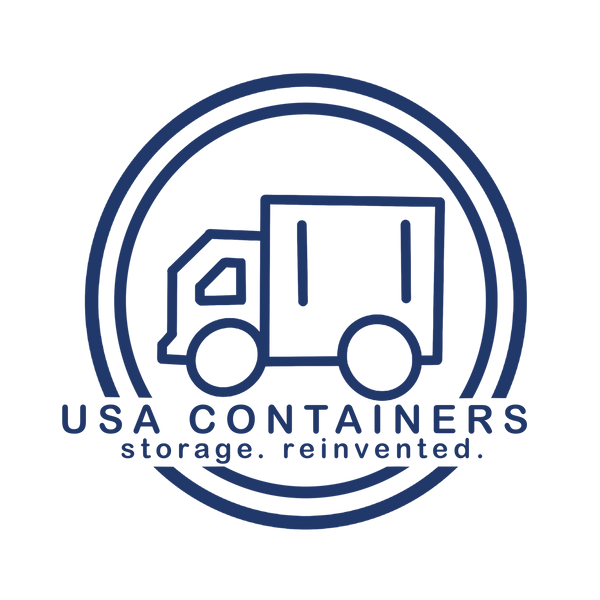The shipping container industry operates within a global ecosystem, making it particularly susceptible to external forces. Geopolitical conflicts, technological advancements, and evolving consumer expectations are driving rapid transformation. Leaders must recognize that the pace of change will only accelerate—and prepare accordingly. Effective leadership in a dynamic environment requires leaders to be aware of (or even anticipate) changes in the industry, encourage flexibility when these changes occur, and to promote and be open-minded to new ideas.
Listening to Your Team: The Foundation of Adaptability
Leadership in the shipping container industry has historically been top-down, with executives driving decisions based on long-standing practices. However, in an era of rapid change, this approach is no longer sustainable. Frontline employees often have the clearest view of operational challenges, making their insights invaluable.
For example, purchasing managers can identify pricing trends, and logistics coordinators will notice inefficiencies in pick-up or delivery processes before they escalate. Technological issues affecting a customer resource management (CRM) system will be noticed early by salespeople using the system on a regular basis. Delivery drivers can share customer input that is instrumental in the decision-making process. Leaders who actively listen to their teams create an environment where solutions emerge organically.
Actionable Steps for Leaders:
• Foster open communication: Regularly host meetings and forums where employees can voice concerns and propose solutions. For USA Containers, a leader in the portable storage industry, this is a common practice. From group chats that allow members to ask questions and make suggestions, to regular meetings where the floor is open for discussion, the leadership team encourages open communication.
• Leverage technology: Use tools like anonymous surveys to get feedback from all levels of your organization and embrace AI when it makes processes easier and more efficient.
• Acknowledge contributions: Recognize team members who provide valuable input, reinforcing a culture of collaboration and innovation.
When leaders show that they are open to input from their team, they are able to take advantage of the collective intelligence of their workforce. This not only improves operations, but also empowers employees, boosting morale and retention.
Embracing Flexibility in Leadership
The shipping container industry is facing unprecedented challenges, from fluctuating fuel prices and port strikes to geopolitical tensions and the threat of increased tariffs. Leaders who insist of doing things as they’ve always been done risk falling behind. Flexibility in a rapidly changing environment isn’t just a necessity—it’s an essential mindset for leaders who want to thrive in the shipping container industry.
Ways to Cultivate Flexibility:
• Contingency planning: Develop contingency plans for a range of possible disruptions, from natural disasters to man-made political and economic crises.
• Empower decision-making: Delegate authority to managers and teams, enabling faster responses to challenges.
• Be willing to experiment: Instead of clinging to rigid, outdated business strategies, experiment with small-scale changes and make adjustments based on results.
By remaining flexible, leaders can help their organizations respond effectively to both challenges and opportunities.
Being Open-Minded to Innovation
In an industry as standardized as shipping containers, it’s easy to dismiss new ideas as unnecessary, but innovation drives growth. Leaders who are open-minded recognize that innovation is essential for progress.
Strategies for Open-Minded Leadership:
• Stay informed: Regularly attend conferences, read trade publications, and engage with industry leaders to stay informed of trends. The National Portable Storage Association invites all members to attend their annual conference and networking events, subscribe to the quarterly newsletter, and actively participate in discussions being held in the community forum linked on their website.
• Encourage experimentation: Create an open environment for teams to suggest and experiment with new technologies or processes.
• Promote collaboration: Collaboration allows members from different departments to share ideas, providing fresh perspectives that help leaders make informed business decisions.
An open-minded approach doesn’t mean leaders have to adopt every new idea that comes across their desk, but a good leader will evaluate those ideas objectively and take action on those that have the potential to improve your business.
Leadership Traits for Navigating Change
Successful leaders in the shipping container industry share key traits that enable them to adapt to change:
• Visionary Thinking: A clear vision helps organizations navigate uncertainty and stay focused on long-term goals.
• Resilience: Change is inevitable. Leaders recognize this and give their teams the tools need to adapt to change while remaining open to new ideas and being willing to adopt them as needed.
• Collaboration: Building strong relationships—both internally and with external stakeholders—creates a foundation for collective support and problem-solving.
• Empathy: Understanding the perspectives of employees, customers, and industry partners fosters trust and goodwill.
Are You Ready to Lead in a Era of Rapid Change?
Leaders who embrace adaptability—by listening to their teams, staying flexible, and remaining open-minded—will thrive in this new era of rapid change. Those who resist will risk being left behind.
The question isn’t whether the industry will change; it’s whether you are prepared to change with it. As a leader, the time to act is now. By fostering a culture of innovation, resilience, and collaboration, you can position your business to succeed in the face of whatever challenges the future holds.
The future of shipping container industry will be shaped by the willingness of leaders to think outside the box.
Reprinted with permission from the National Portable Storage Association (NPSA)
Do you need a shipping container? Fill out the form below for a free quote today:

